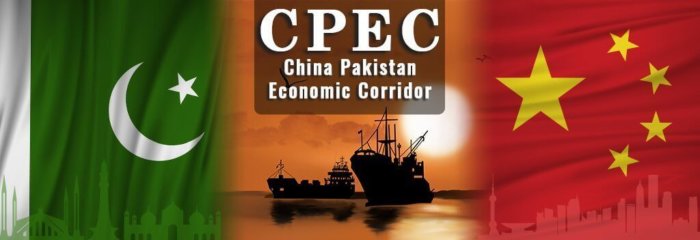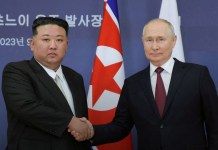China’s ambitious $62 billion China Pakistan Economic Corridor (CPEC) is running into trouble with political unrest, massive corruption and the pandemic halting several projects according to various domestic and international reports.
7000-Tonne, Most Lethal Chinese Submarine Type-093A Heightens Tension As It Goes Hunting In The Sea
CPEC has faced a push back in the key areas like Balochistan where the extremist opposition have carried out attacks on the sites of the projects. The militant outfits have been fighting against Pakistan’s exploitation in the resource-rich Balochistan. The Baloch groups say that the provinces of Sindh and Balochistan are hit by China’s “expansionist” and “oppressive” policies that are intended to “subjugate” them.
From the past number of attacks, analysts believe that these Balochi extremist organizations target the places that are of Chinese interest. The Gwadar port attack where a militant group attacked a convoy of oil and gas workers escorted by paramilitary troops southwestern province of Balochistan and earlier the attack on the Pakistan Stock Exchange in the city of Karachi, where Pakistan sold 40% of the stake of the Stock exchange to a Chinese consortium, points in that direction.

Round the clock security of Chinese interest sites and personnel leads to an increase in the cost of the projects.
Michael Kugelman, deputy director of the Asia program at the Wilson Center in Washington, told Nikkei Asia that such attacks reinforce the anxieties of Islamabad and Beijing about the security of CPEC projects.
“Beijing has shown a willingness — not just in Pakistan, but in other volatile areas of the world as well — to tolerate a fair amount of risk when making investments in insecure spaces,” he said.
To woo the critics of the project in the region, Pakistan Prime Minister Imran Khan announced a mega development project in the region. However, questions have been raised about how these projects will be financed given Pakistan’s cash-strapped government.
Pakistan is seeking a $2.7 billion loan from China for phase-1 of the Main Line 1 (ML-1), the biggest project under CPEC worth $6.8 billion under which a 2,655-kilometer railway line will connect Karachi in the South to Peshawar in the North of Pakistan, reported The Express Tribune.
According to the report, the project is facing delays and sources have revealed that the one percent interest rate that Islamabad has proposed has not yet been accepted by the Chinese banks. The Chinese authorities have conveyed that it would be higher than 1 percent. Experts talking to Nikkei Asia said that Beijing is using delaying tactics as it doesn’t want to end up with a bad deal.
Recently Imran Khan’s government has seen a major pushback from 11 opposition parties that have now banded together and formed Pakistan Democratic Movement (PDM). Khan is accused of working under military control and for not prioritizing and expediting the “golden economic opportunity” of the Chinese investments, said Asia Times.
In 2018, Khan suspected massive corruption in CPEC projects by previous administrations and had halted several projects. In April this year, an inquiry report, many of his cabinet ministers were named in corruption cases including Khan’s advisors Razak Dawood and Nadeem Baber, Asia Times reported.
The PDM has demanded the removal of CPEC Authority’s chairman, retired Lieutenant General Asim Saleem Bajwa who has been accused of holding offshore assets. Reportedly, the CPEC Authority Ordinance protects the chairman and the staff from legal proceedings against them protecting them from the National Accountability Bureau (NAB), Federal Investigation Agency (FIA) and the police to initiate cases against them.
“The CPECA’s legality issue, chairperson’s immunity from legal proceedings and the controversies of overseas family businesses surrounding the authority’s incumbent chairperson gave a bad impression and must be resolved to improve the efficiency of CPECA,” Senator Mushahid Hussain Sayed, a Pakistan Muslim League-Nawaz leader and chairman of the Pak-China Institute think tank told Asia Times.
“Pressures are emanating from the West and Western institutions – primarily in Washington – against the CPEC but Pakistan has demonstrated willingness, readiness and ability to withstand these pressures,” Mushahid added.
He added that the CPEC projects are delayed due to the COVID-19 pandemic remarking that at least three new projects, two in energy and one in railway renovation were restarted this summer.




